Life
Sign up for our newsletter
We summarize the week's scientific breakthroughs every Thursday.
-
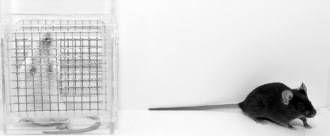 Neuroscience
NeuroscienceThe molecular path of best resilience
Many studies focus on susceptibility to stress and how it triggers depression. But a new study highlights a protein important in resilience, showing that resisting stress takes work, too.
-
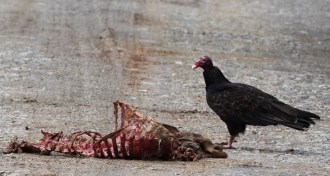 Animals
AnimalsVulture guts are filled with noxious bacteria
Vultures’ guts are chock-full of bacteria that sicken other creatures.
-
 Genetics
GeneticsOrchid genome may save highly endangered species
The sequenced genome of the orchid Phalaenopsis equestris offers some hints about a different form of photosynthesis and how the flowers of the plant got their specialized shape.
-
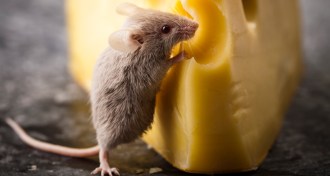 Health & Medicine
Health & MedicineAdd high-fat diet to the ‘don’t’ list for pregnant moms
There’s always controversy over what to eat while pregnant. Four animal studies at this year’s Society for Neuroscience meeting bring together negative effects of high-fat diets.
-
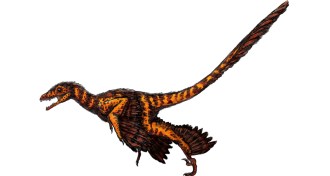 Genetics
GeneticsGenes linked to feather development predate dinosaurs
The genes for feather development may have existed more than 100 million years before dinosaurs sported hints of the fluffy plumage.
-
 Animals
AnimalsFully formed froglets emerge from dry bamboo nurseries
In remote India, a rare frog mates and lays eggs inside bamboo stalks. The eggs hatch into froglets, forgoing the tadpole stage.
-
 Earth
Earth‘Mass Extinction’ vivifies the science of die-offs
The dinosaurs were killed off some 65 million years ago after a colossal asteroid struck Earth. But what many people probably don’t know is how paleontologists came to that conclusion. "Mass Extinction: Life at the Brink" tells that story.
By Erin Wayman -
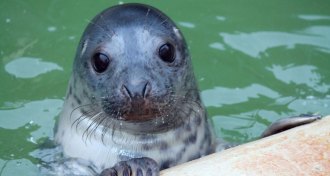 Animals
AnimalsScientists’ tags on fish may be leading seals to lunch
In an experiment, 10 young grey seals learned to associate the sound of a pinging tag with fish. The tags may make fish vulnerable to predators, scientists say.
-
 Neuroscience
NeuroscienceAfter injury, estrogen may shield the brain
Estrogen helps to prevent some of the chronic inflammation that occurs after brain injury.
-
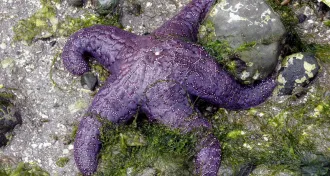 Animals
AnimalsVirus implicated in sea star die-off
Sea stars on the west coast have been wasting away into puddles of slime. Now, scientists think they have pinpointed the virus that is causing the mass die-off of the dazzling marine creatures.
-
 Neuroscience
NeuroscienceBreathing returns to paralyzed rats
Scar tissue–busting enzyme plus rehabilitation therapy improves respiration long after rats’ initial spinal cord injuries.
By Meghan Rosen -
 Life
LifeNorovirus can play protective role in mice
In mice, viral infection can help intestines develop, strengthen immune system.